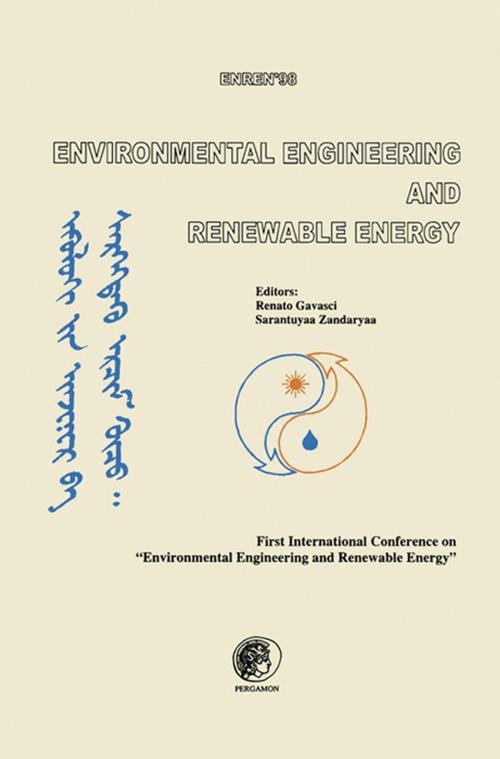Environmental Engineering and Renewable Energy
Nonfiction, Science & Nature, Technology, Power Resources, Engineering| Author: | Renato Gavasci, Sarantuyaa Zandaryaa | ISBN: | 9780080983912 |
| Publisher: | Elsevier Science | Publication: | December 2, 2012 |
| Imprint: | Elsevier Science | Language: | English |
| Author: | Renato Gavasci, Sarantuyaa Zandaryaa |
| ISBN: | 9780080983912 |
| Publisher: | Elsevier Science |
| Publication: | December 2, 2012 |
| Imprint: | Elsevier Science |
| Language: | English |
This book contains the papers presented at the First International Conference on Environmental Engineering and Renewable Energy held in Ulaanbaatar, Mongolia in September 1998. The main aim of the conference was to give an opportunity to scientists, experts and researchers from different fields to convene and discuss environmental and energy problems and also be informed about the state of the art.
Today, environmental protection is increasingly becoming a matter of global priority now that the tendency towards sustainable development is growing. The main concept of sustainable development is to fulfill both the demand of today's generation and cater for the requirements of future generations. Hence, sustainable development requires sound management of those environmental and research and development technologies which have low environmental impact and which promote the use of renewable sources.
Renewable energies are the only environmentally benign sources of energy and are available at any site and any time of the year. Moreover, the utilization of renewable sources of energy can contribute to the increasing energy demand and also advance the improvement of life standards in rural areas, where it is difficult to establish a permanent connection with central electricity systems. Application and adoption of emerging renewable energy technologies in rural and remote areas cannot be successful without transfer of knowledge, information and know-how.
Environmental engineering involves research and application of technologies to minimize the undesirable impact on the environment. In recent years, there has been a growing interest in environmental engineering problems in order to focus on theoretical and experimental studies on atmospheric pollution, water management and treatment, waste treatment, disposal and management.
This book contains the papers presented at the First International Conference on Environmental Engineering and Renewable Energy held in Ulaanbaatar, Mongolia in September 1998. The main aim of the conference was to give an opportunity to scientists, experts and researchers from different fields to convene and discuss environmental and energy problems and also be informed about the state of the art.
Today, environmental protection is increasingly becoming a matter of global priority now that the tendency towards sustainable development is growing. The main concept of sustainable development is to fulfill both the demand of today's generation and cater for the requirements of future generations. Hence, sustainable development requires sound management of those environmental and research and development technologies which have low environmental impact and which promote the use of renewable sources.
Renewable energies are the only environmentally benign sources of energy and are available at any site and any time of the year. Moreover, the utilization of renewable sources of energy can contribute to the increasing energy demand and also advance the improvement of life standards in rural areas, where it is difficult to establish a permanent connection with central electricity systems. Application and adoption of emerging renewable energy technologies in rural and remote areas cannot be successful without transfer of knowledge, information and know-how.
Environmental engineering involves research and application of technologies to minimize the undesirable impact on the environment. In recent years, there has been a growing interest in environmental engineering problems in order to focus on theoretical and experimental studies on atmospheric pollution, water management and treatment, waste treatment, disposal and management.















